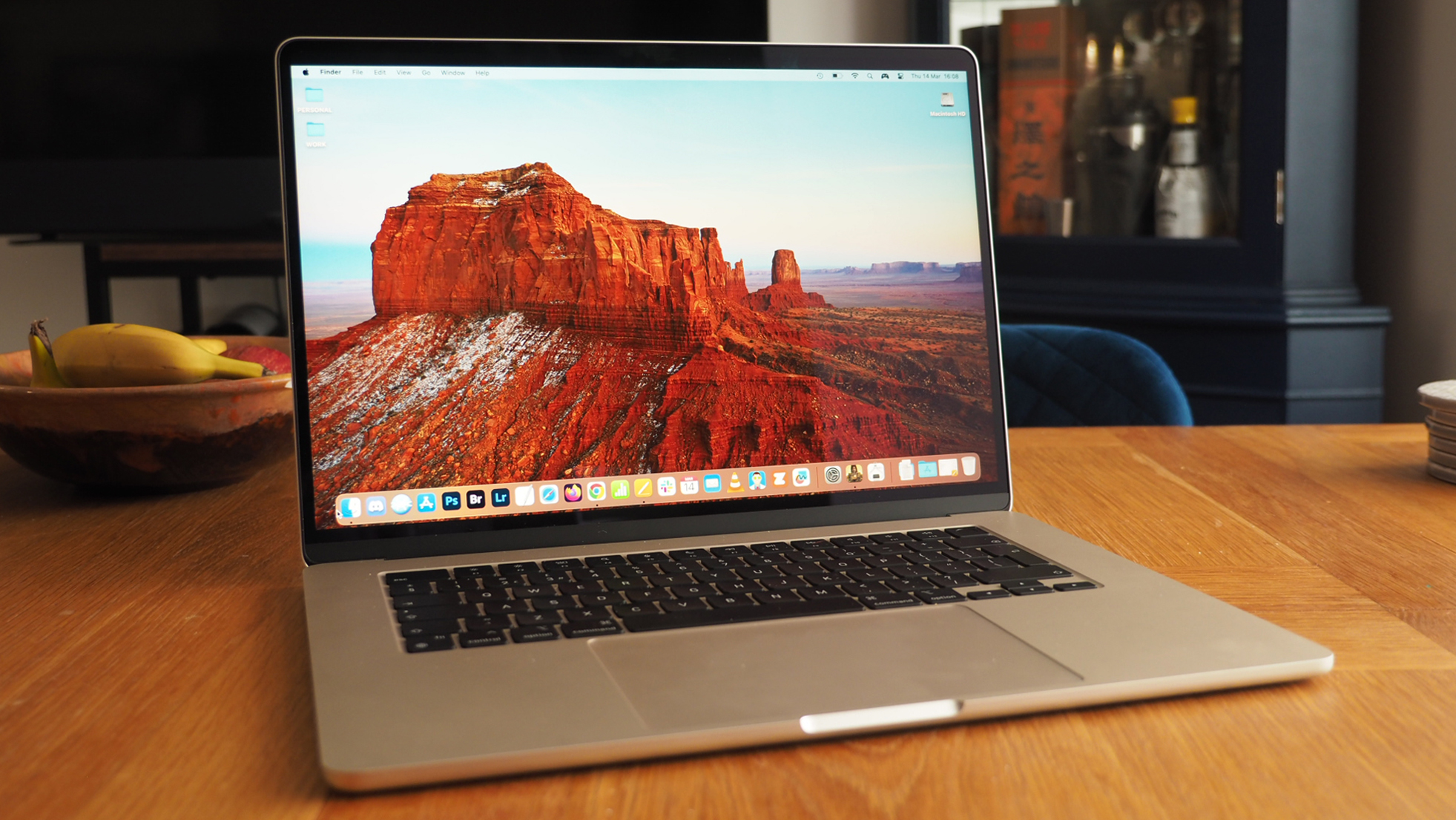
When Apple revealed the 15-inch MacBook Air it was a big deal – and not just literally. That was only in the summer of last year, so it's not taken long for Apple's 'big Air' to receive an internal hardware update, which I'm reviewing here with the latest M3 processor on board.
The best MacBooks now offer a full suite of options to suit all needs. I've been a long-time 13-inch MacBook Air user, as I feel it's the best laptop for most people, but the larger-screen 15-inch Air complements that so well for those seeking more screen real-estate. The option of in-between sizes in the 14-inch MacBook Pro and 16-inch MacBook Pro complete the family with even more powerful options.
What I found so impressive about the original 15-inch MacBook Air – and this remains true of the 2024 model – is just how thin and light it is considering the screen's 15.3-inch scale. Indeed, it's still the thinnest and lightest laptop with a display of this size. Does that combined with the even more powerful M3 silicon inside equate to the ultimate experience – or does more power bring any compromise?
MacBook Air 15in M3: Price & Availability
Unlike the 13-inch MacBook Air, which remains on sale with M2 and M3 variants at staggered price points, the 15-inch MacBook Air 2024 wipes the slate clean and only offers M3 inside. It's also a little cheaper (£100 less in the UK; US and AU remain the same) when comparing 2023 and 2024 models.
The MacBook Air 15-inch M3 is available to buy right now, priced at £1,299/$1,299/AU$2,199 for the entry-level model. Unlike the entry-level 13-incher, the 15-inch only ships with the 10-core GPU. Step-up pricing sees more unified memory (RAM) and storage options.
MacBook Air 15in review: What's new?

The original 15-inch MacBook Air was a totally new venture. The 2024 update? It's visually identical, so there's nothing new in terms of design or external features. It's all about M3 inside.
But upgrading to M3 does mean new features are available: inevitably there's greater compute power, plus the Air now handle up to two 5K external monitors (only one if the lid is open though), and there's also Wi-Fi 6E (not just 'plain' 6) for faster connectivity.
MacBook Air 15in review: Display & Sound

The main reason to consider buying the 15-inch MacBook Air is, indeed, its display. Here it's a 15.3-inch panel, sitting at a slightly smaller scale than the typical 15.6-inch diagonal measure commonplace in the market. I think this is a perfect fit though, with enough point of difference from the larger 16-inch MacBook Pro.
There's plenty more info about the display, all of which matches its 13-inch Air brother in like-for-like form. Sure, the 15-inch panel has more pixels to cater for its larger area, but the overall density is the same (at 224ppi). It's a crisp visual that looks great.
With 500 nits of brightness maximum it's capable of high dynamic range (HDR), covers a wide colour spectrum (DCI-P3), and there's True Tone technology (to adapt blue light output related to surrounding ambient light for increased comfort). It's not too reflective a panel either, which is critical for me in those working on-the-move days or for when the sun is out.
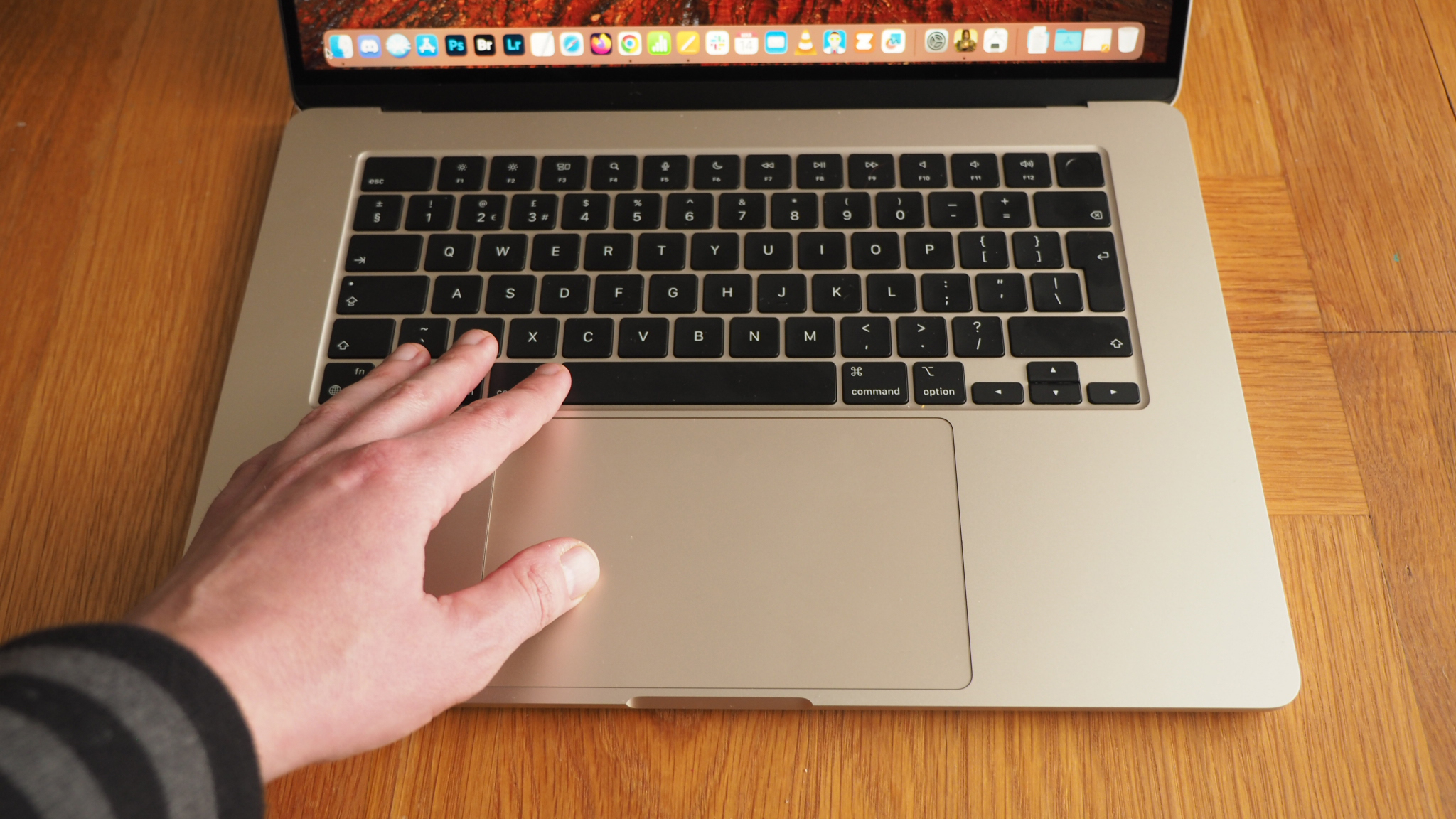
That's not to say the 15-inch MacBook Air's display is perfect at every turn. It inherits the same notch as found on the 13-inch model – although, given how most apps 'hide' it using black bar surrounds, you'll quickly forget it's there much of the time. I've basically become blind to it.
The screen's refresh rate, like the brightness level, is also a step below what you'll find in the Pro range. But that's fine: the 15-inch Air's 60Hz LCD panel still looks smooth in playback, it just doesn't tickbox 120Hz. Sure, many Windows laptops will offer faster refresh rates, but sometimes will fail to deliver the right visual clarity that Apple has got so right here.
When it comes to sound to accompany the visuals, the MacBook Air 15's use of a six-speaker system is really impressive. It supports Apple Spatial Audio when playing Dolby Atmos content, which adds a truly convincing three-dimensionality to output. Whether gaming, listening to music, or anything else, there's this really wide soundstage achievement from this Mac.
MacBook Air 15-inch review: Performance & Spec
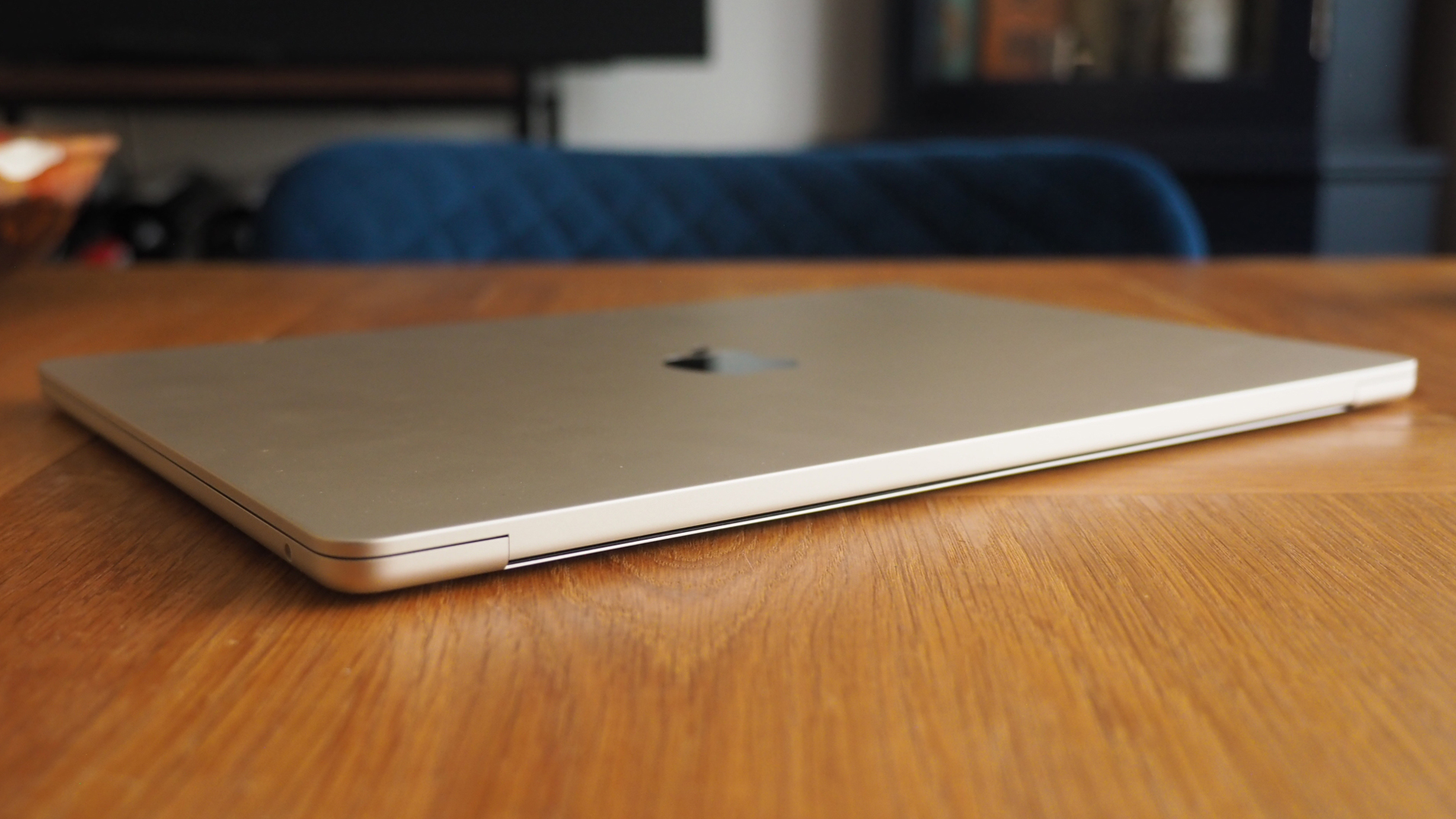
The MacBook Air 15-inch M3 I have on review is actually the top-spec of three defaults that Apple sells. At the entry point it features 8GB RAM. Step up and it doubles the storage to 512GB. Jump up a level again and the memory doubles to 16GB, in addition to that larger storage option.
However, if you have specific wants and needs, then there's even more customisation avaialble: the memory can be pushed to 24GB, while the SSD can expand to a giant 2TB. The price will also expand quickly, too, so my thinking at that point is to consider a MacBook Pro. For most people, however, the entry-level option will be more than sufficient (even with 8GB 'RAM', it's surprising what these MacBooks can achieve).
The updated 15-inch Air's M3 chip brings a welcome boost, although don't expect more power or graphical capability here than the 13-inch model (the caveat there, of course, being that the entry-level smaller-screen option has an 8-core rather than 10-core base GPU). It's still a strong showing though, with my Geekbench 5 tests netting 2360 single-core and 10,760 multi-core score – around a 26% boost over the previous generation.
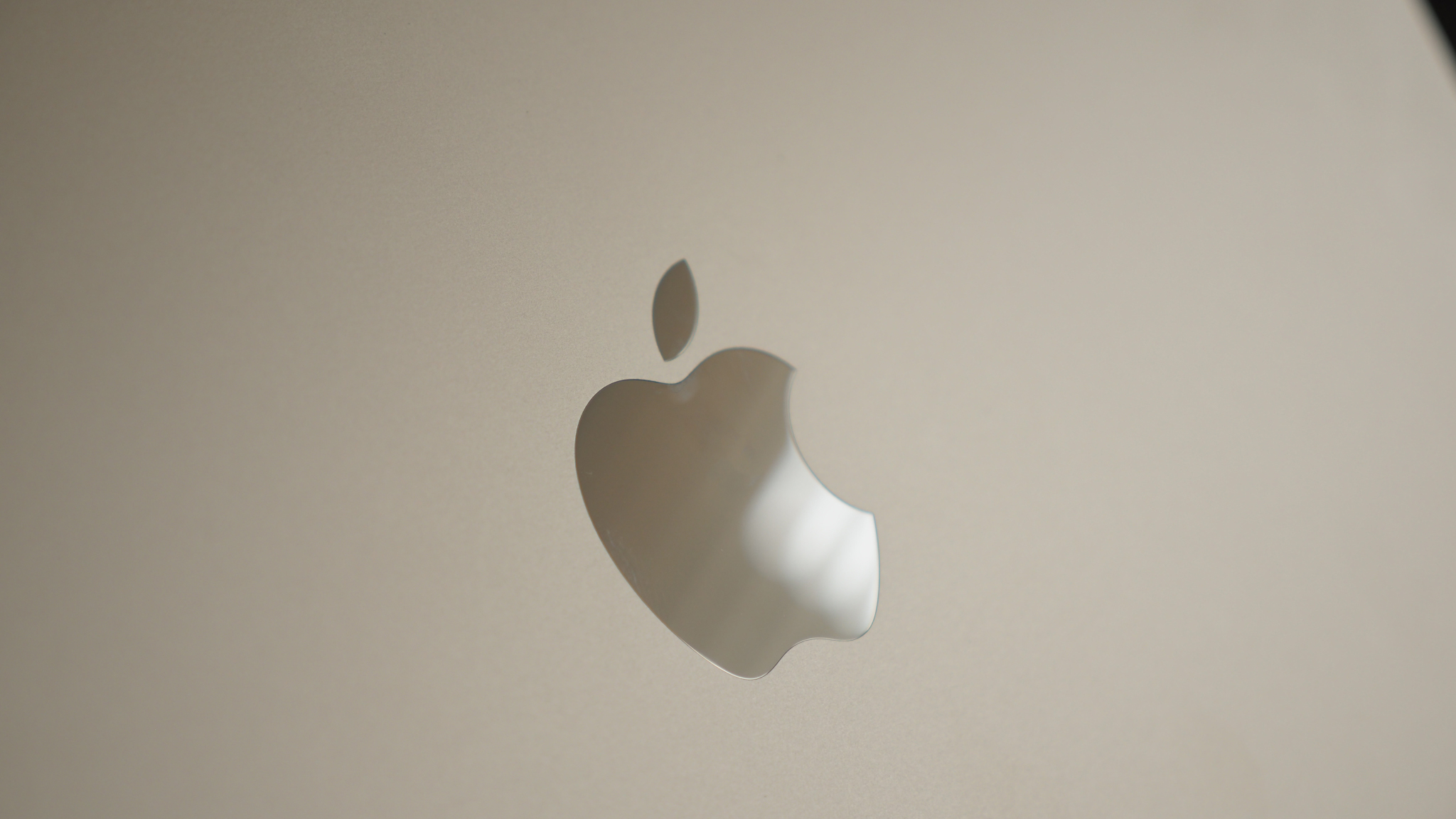
If graphics power is more your want then the 15-inch M3 Air's score of around 34,750 (Apple Metal) and 32,500 (OpenCL) is marginally increased over the previous M2 model too. It's great to put that to practical work, too, with a copy of Death Stranding being my first forway into that game. It runs beautifully, too, maintaining high frame-rates – but predictably squeezing the battery rather more than your average operation.
As the M3 inside runs without a fan, it depends on dissipating the heat through the chassis. I'm all for this, as while it can run warm to hot, the lack of any whirring sound is heavenly. However, in this arrangement it does mean the M3 is slightly throttled compared to a fan-cooled equivalent, so you won't achieve quite as much as a MacBook Pro. It's all about what best suits, and for many people the Air's approach will be ideal.
As I said of the previous MacBook Air 15: "numbers aren't the be-all-end-all, as performance really comes down to real-world use." Just as before, I've found the M3 near instant in its ability to load large files, perfectly capable in 4K video editing with multiple streams, but also quietly adept with handling dozens upon dozens of browser tabs without issue in the background. All presented through that larger display.
MacBook Air 15 review: Battery life & Charger
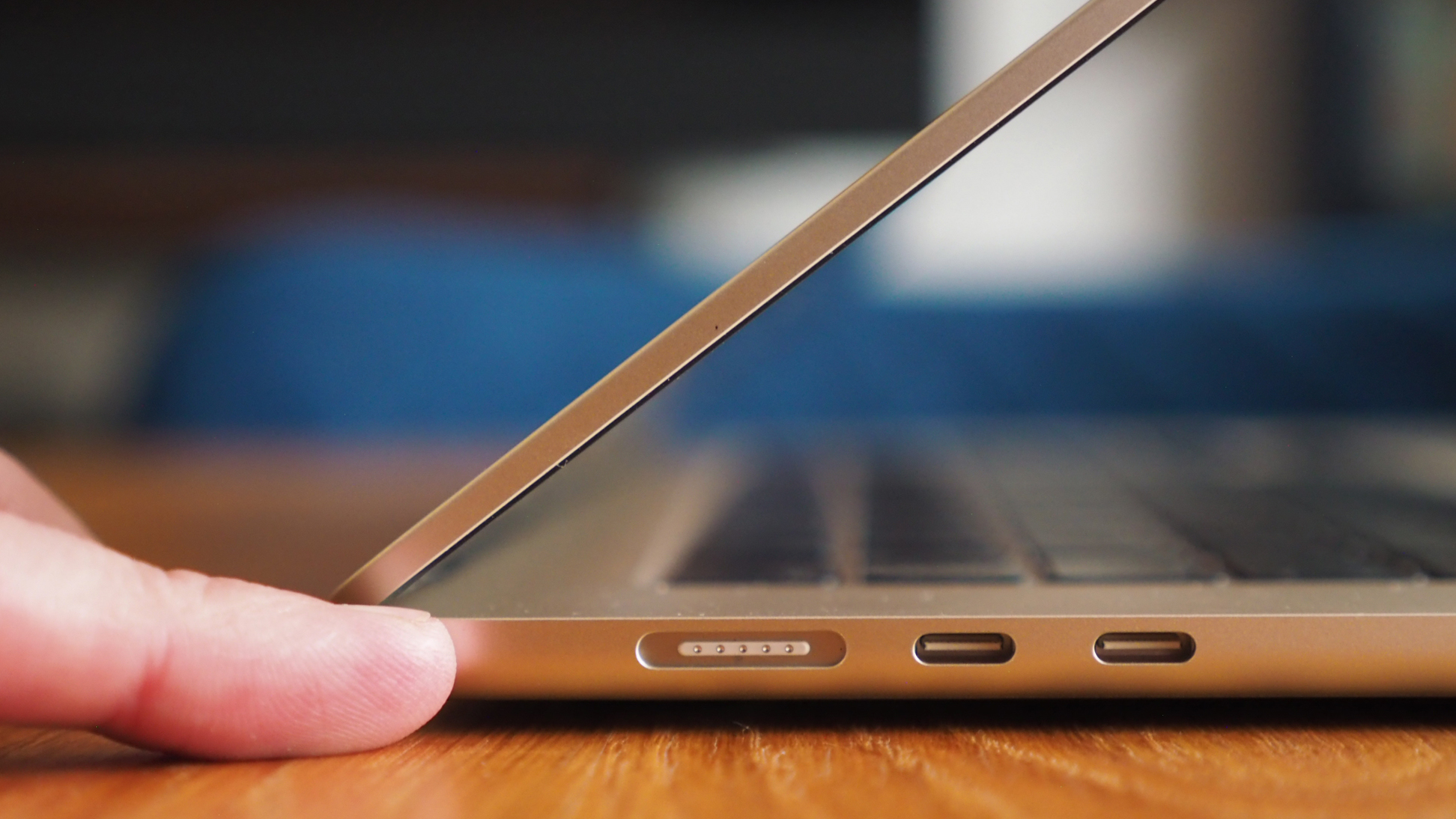
The MacBook Air 15-inch M3 has a 66.5Whr battery capacity, so it's physically larger and more capacious than the 52.6Whr one in the 13-inch M3. I assumed that'd immediately make for better innings per charge but, oddly, was initially hit by a few hiccups in my testing.
At full brightness, for example, a 2160p video stream on YouTube tanked the battery in just 7 hours – far less than the 13-inch model. But this is why repeat testing and truly living with a product is important, as some days after that initial test – and bar for some Zwift graphics crashes – I've since achieved much better performance.
Okay, so not to the full 18-hours maximum that Apple quotes, but not a million miles behind. That same 2160p YouTube stream behaved much better, netting me just over 13 hours. That's less than some other testers I know have been achieving, and it's important to note it's less than the M2 predecessor running the same test, but it's still a generally good result.
When Apple introduced the notched screen design to MacBook Air, it also added MagSafe charging to the mix. That's in addition to the twin USB-C ports, so you can choose whether you charge using one, other or both together. The dual-port 35W plug included in the box caters for that (but you'll have to pay extra for the compatible 70W plug, if you want speedier charging).
MacBook Air 15in M3 2024 review: Verdict
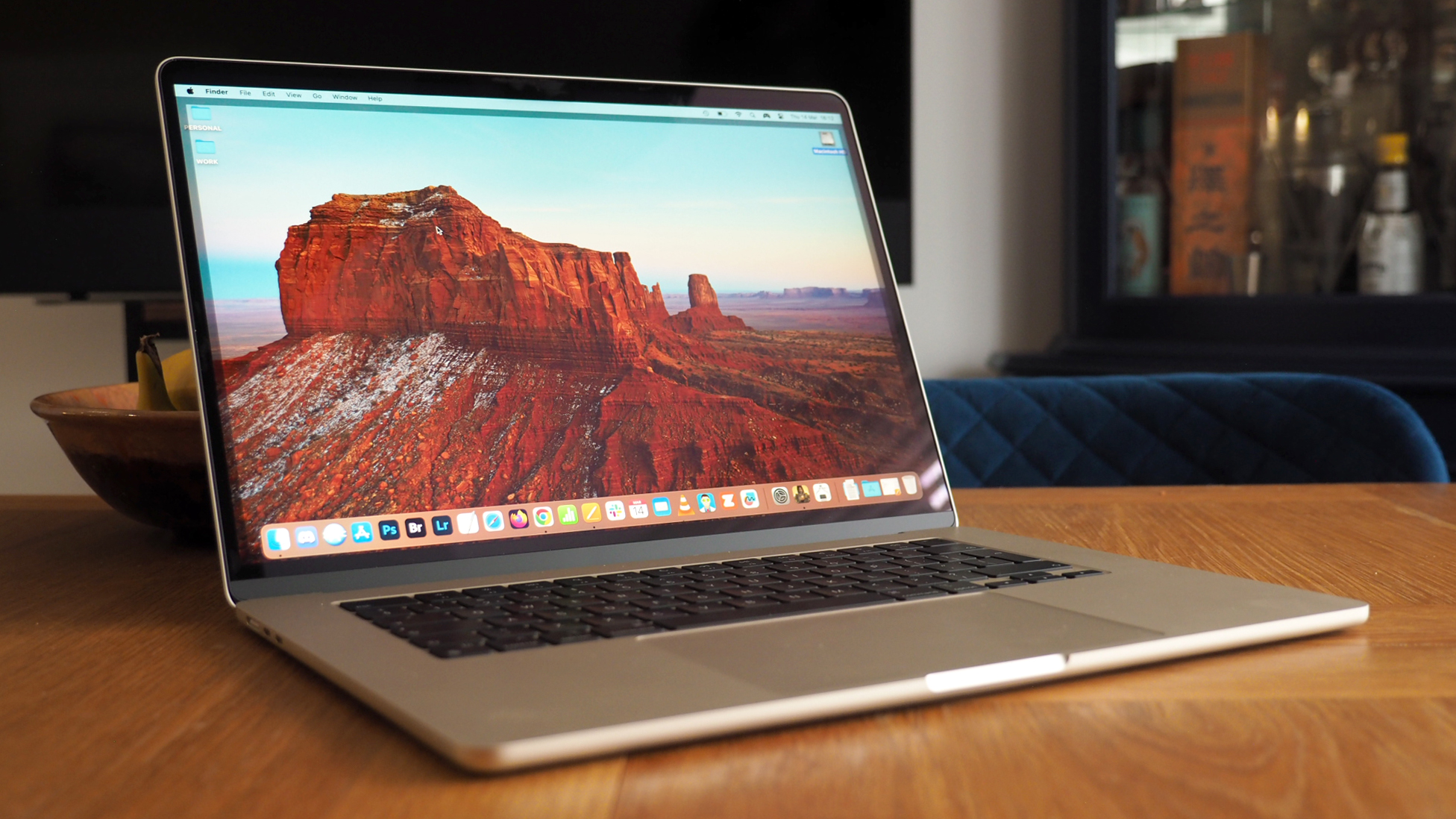
With a 15.3-inch display, the 'Big Air' in Apple's MacBook line-up has a simple sales pitch: it's a MacBook Air, embodying everything typically slim, light and portable about that, except it's got a bigger screen. And now it's got more power, too, thanks to the M3 chip inside for this 2024 release.
So what are the compromises? Well, it costs more than a 13-inch model, as you'd expect. I've also seen minor battery life decreases in my tests compared to the previous model. And that in-screen notch may continue to divide the crowd.
But the more I use the 15-inch model, the more I want it as a desktop replacement. Happy as a long-time MacBook Air 13-inch user, which is great for portability, the larger-screen MacBook Air still maintains a small footprint and lightweight design all considered – truly delivering on that 'Air' name.
As said up top: when Apple announced the 15-inch MacBook Air it was a big deal. It remains that in 2024, too, with the internal M3 hardware bump making it an even more qualified larger-screen consideration. So if you don't need a MacBook Pro but have always wanted a larger display then this is the MacBook of your dreams.
Also consider
Keeping it in the Mac family, your logical alternatives are the 13-inch MacBook Air M3 or M2 options, if you can cope with a smaller screen for the sake of financial savings.
In the opposite approach: if you want more power and are happy to spend more then the 14-inch MacBook Pro and 16-inch MacBook Pro step things up a notch. You won't get silent operation, though, which is one of the 15-inch Air's great features.







